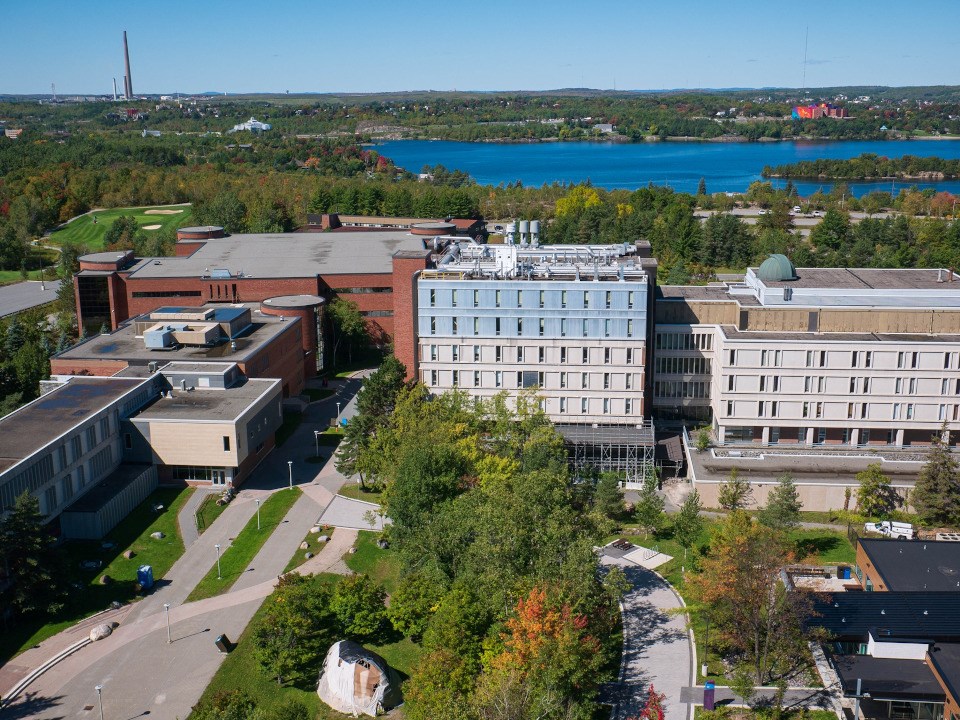Advancing an idea from the research stage toward commercialization can be tricky business for mining entrepreneurs, but a new innovation cluster wants to make it easier for Northern Ontario companies to make that leap.
Announced in April, the cluster comprises Laurentian University in Sudbury, which will lead the initiative, Lakehead University in Thunder Bay, Nipissing University in North Bay, and Trent University in Peterborough.
It will focus its efforts on three target areas: critical minerals, clean technology, and battery electric vehicles.
The goal, explained Gisele Roberts, Laurentian’s director of research and innovation, is to create a roadmap of all the expertise in those sectors that currently exists across the North.
“We hear so much about critical minerals and the opportunities, but how do we connect all the dots in the North to see what the resources are?” Roberts said.
“What’s the expertise at the universities? What’s the equipment? What are the research centres?
“And what’s in the communities that supports the commercialization of technologies and supports the creation of startups or supports the businesses that are working in this sector?
Funding of $294,000 for the one-year pilot project comes from Intellectual Property Ontario (IPON).
The agency was created last year by the provincial government to help postsecondary education and research and innovation sectors generate, protect, manage and commercialize intellectual property (IP).
Of the seven projects awarded funding from the newly formed agency, the Laurentian-led cluster is one of only two university projects in the mix.
Over the next year, Roberts said, the cluster wants to help educate northern innovators on the finer points of intellectual property — what is it, why is it important, and how do you secure it for your next big idea?
Part of the IPON funding will go toward hiring a liaison to do that work.
But the liaison will also aim to create a direct link between Northern Ontario and IPON, which has traditionally focused its efforts in med-tech, artificial intelligence and the auto sector in larger areas such as Toronto, Waterloo, and Ottawa.
“We want to make sure that we’re on their radar and they see this as an opportunity, really, to engage in the critical minerals sector,” Roberts said.
“They’ve got their three initial sectors, but potentially this allows them to venture into critical minerals and seeing how they can support companies in the space.”
Some funding will also be available to help innovators access IP services for their projects, she added, and they could come from the university level or from existing Northern Ontario companies.
Targetted IP services are particularly valuable for the mining industry, which is typically risk-averse and slow to adopt new technologies, Roberts noted.
“Mining is a whole different entity when it comes to commercialization because it costs so much money if it doesn't work,” she said.
If a new technology doesn’t work, the mine could be shut down, resulting in lost production, which is “hideously expensive,” she said. And, in a worse-case scenario, product failure could lead to worker injury or fatality, a situation no company wants to experience.
“So, how do we de-risk (the technology) for the company?” Roberts said.
The search is now on to find the right candidate to fill the liaison position, which Roberts hopes will be filled as soon as possible so work can begin.
That person doesn't have to live in Northern Ontario, she said, as long as they have the right skills and knowledge to do the job.
Roberts is actively encouraging researchers, innovators and entrepreneurs to reach out if they’re interested in learning more, and said the cluster will be conducting lots of outreach over the year to get feedback from the Northern Ontario community.
“We’re kind of guinea pigs here,” she said. “I’m hoping that we have such great outcomes that IPON sees they need to have more of a presence in the North, and support our industries and our colleges and universities in the North.”




